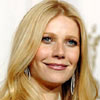 wyneth Paltrow is one. So are Angelina Jolie and Leonardo DiCaprio. Chances are your bikram yoga teacher has the major characteristics and so does the guy who makes your fruit smoothie at Jamba Juice. Donna Karan is totally in on it. The salesperson who helps you find the right Botanical Kinetics moisturizer at Aveda is probably one, along with your eco-tourism guide at Costa Rican surf camp. Richard Gere may be the proto-one and Uma Thurman was pretty much born into it. What is influencing Hollywood stars and Wal-Mart shoppers, fashionistas and Filene's basement-dwellers alike? It's called metrospirituality, and chances are you already know or even lead the life of a metrospiritual.
wyneth Paltrow is one. So are Angelina Jolie and Leonardo DiCaprio. Chances are your bikram yoga teacher has the major characteristics and so does the guy who makes your fruit smoothie at Jamba Juice. Donna Karan is totally in on it. The salesperson who helps you find the right Botanical Kinetics moisturizer at Aveda is probably one, along with your eco-tourism guide at Costa Rican surf camp. Richard Gere may be the proto-one and Uma Thurman was pretty much born into it. What is influencing Hollywood stars and Wal-Mart shoppers, fashionistas and Filene's basement-dwellers alike? It's called metrospirituality, and chances are you already know or even lead the life of a metrospiritual.
Do you go out of your way to buy organic food? Have you thought about the wu wei in your home? Have you tried yoga, belly-dancing, or surfing recently? Are you attracted to traditional crafts from other cultures or have you started knitting? Do you own a Prius or have you thought about buying a hybrid car? Are you a tea connoisseur or an organic wine- and beer-drinker? Is there a certain aromatherapy scent that brings you comfort, especially in candle form? If most of your answers are yes, then count yourself among the growing numbers of metrospirituals-the kinder, gentler post-Yuppies who want to treat the earth and native cultures with respect, connect with their inner source and inspiration, test their bodies and expand their minds with ancient physical practices-and do it all with serious style.
Jim Twitchell, a professor of English at the University of Florida and author of many books about consumer culture, including "Adcult USA: The Triumph of Advertising in America" (1995), attributes the demand for luxury goods to a need for salvation or epiphany through consuming. Throughout history, Twitchell argues, "The primary deliverer of sensations was the church. That's where you went to have an epiphany. . The sensations of luxury mirror the sensations of epiphany-the ability to give the consumer the sensation that I've come to the end of the line, I'm saved, I'm there, I don't have to wrestle any more." The metrospiritual takes luxury-buying to a new level--reaching outward for connection to the planet and to each other.
According to Sharon Lee of youth-trend forecasting firm Look-Look, "There's lots of desire to be spiritual and have more meaning than a commercial, purely secular lifestyle provides. And there's a smorgasbord of product offerings that have gradations of spirituality woven into them." The words you see and hear again and again on the many products that help define and support the metrospiritual lifestyle-like Fresh's Crème Ancienne which is made by hand at a monastery in the Czech Republic--are "calm," "enrich," "renew," "inspire," "experience," "connect," "heal," "ancient" and "conscious," for starters.
Spirituality with Style
 |
| Gwyneth Paltrow is a metrospiritual |
And what are you actually getting if you have the patience to wait on the slowly snaking line? Semi-fast food that is nutritious and delicious (the Number Six, for example, is masala-spiced potatoes with spinach, jack cheese, and tomato), served in an atmosphere heavy on the good yogic vibes. You're getting food with a stamp of individualism and thought, an exotic staple made American and virtuous in some ineffable way.
Virtue is a key feature of the metrospiritual lifestyle, and those in the fold expect it not only of themselves but also from the companies to which they give their business. Of course, as Sharon Lee points out, "Lots of companies are doing a superficial job and lots of companies are doing a really meaningful job" of being responsible global citizens. At Origins, part of the written mission is to "do whatever we can to protect the earth and its resources." On Aveda's website, the idea is to "strive to set an example for environmental leadership and responsibility."
Metrospiritual companies that practice what they preach believe that popular, profitable products and social responsibility are not mutually exclusive propositions. Whole Foods, an emblematically metrospiritual company, is in the midst of a massive expansion of its $3.9 billion business. Not surprisingly, the Whole Foods web site echoes the now-familiar mantra, "We believe in a virtuous circle entwining the food chain, human beings and Mother Earth: each is reliant upon the others through a beautiful and delicate symbiosis."
The metrospiritual "holy trinity"
Read more on page 2 >>
| _Related Features | |
|
|
 |
 |
| Aromatherapy in the form of candles |
On a casual tour, this reporter detected a kind of metrospiritual "holy trinity," or perhaps even Bermuda Triangle, in the area around Manhattan's Union Square, where, along with Whole Foods, there are, in close proximity, decorating powerhouse and trendsetter ABC Carpet & Home, and the 5th Avenue branch of the mega-successful retailer Anthropologie. Walking into ABC is like walking into a very expensive devotional warehouse filled with the most beautiful religious statuary/iconography, antique textiles, and jewelry and an intriguing array of books, from the Dalai Lama's "The Art of Happiness at Work" to "Home Enlightenment: Practical, Earth-Friendly Advice for Creating a Nurturing, Healthy, and Toxin-Free Home and Lifestyle."
One of the first things to catch the eye is a waist-high white Buddha-like sculpture. Not knowing quite what it was, I asked a sales associate, who didn't immediately know the answer, but was extremely pleasant about it. We consulted a book on Buddhas, and when that didn't help, asked another associate, who proclaimed it Ganesh, the elephant god, being held by his mother. Whether or not this is ultimately right, does it matter? It's Indian, it's expensive, and a lot of people have believed in it for a very long time, probably with very good reason.
Does the metrospiritual need to know the exact genesis and meaning of every item on her personal altar? Probably not. And anyway, one can always learn. Learning, openness, and exploration are other metrospiritual cornerstones.
 |
| Machu Picchu, a top eco- tourist destination |
David Life, a co-owner of Jivamukti Yoga in New York, a particularly trendy yoga studio (the hip-hop impresario Russell Simmons and the rock star Sting have practiced there), has seen more than his share of the metrospiritual wave. Life points out that "yoga is near the tipping point in the culture-total permeation-people know what it is without being told." With all the new folks flocking to his studio every year, isn't there a danger that the ancient practice will get diluted by commercialism, killed by its own popularity? No, Life maintains, because, "people might come to lose weight or get stronger, but the reason they stay is that yoga has so much to offer in so many areas of a person's life. Principally, it heals their feeling of disempowerment, their disconnection with their own Mother Nature. That healing is why they stay, but it might not be why they came. Which is fine; whatever works."
What is unsaid here is that yoga can be awfully expensive (a 30-class pack at Jivamukti is $345, not to mention the $50 yoga mat and $70 Nuala yoga T-shirt, designed by metrospiritual supermodel Christy Turlington), so in order to get that healing you need a fair bit of disposable income. But Life says that "ethics, volunteerism, social action are important aspects of the yoga practice," so maybe what the yoga students get, they also give back? A virtuous circle, as Whole Foods says, but one that cannot be entered without a sizable fee.
Honoring the planet, exploring, healing yourself-these metrospiritual tenets quickly add up. Want to adopt a baby from an impoverished country, as Angelina Jolie did (twice)? Be prepared to pony up a substantial chunk of change. Want to decrease fuel emissions and our dependence on foreign oil by buying a hybrid? A Toyota Prius, which Leo DiCaprio and a bevy of other Hollywood heavy hitters drive, will run you in the mid to high 20s, fully loaded. Want to eat organic, without using harmful pesticides or cruel animal practices, as Gwyneth and her daughter Apple famously do? Let's just say an organic apple and a regular apple are like apples and oranges when it comes to pricing.
The third and final side of the Manhattan metrospiritual trinity is Anthropologie, where pretty individualism and global eclecticism, under the sweeping banner of exquisite and forward-thinking good taste, reign supreme. Gorgeous Reichenbach tea sets jostle for space with retro aprons and folkloric Christmas ornaments, all on perfectly distressed grey-green driftwood cabinets. As their web site puts it, "Never satisfied with the familiar, our buyers and designers are on a tireless quest for those simple objects that bring beauty to our daily rituals, deepen our experiences, and to put it simply-make life inspiring." Which begs the question, Isn't it easier to find the inspiration in life when you can afford to buy a $238 "passenger jacket" with a kicky peplum plume?
Prices notwithstanding, Anthropologie does seem to deliver on its promises. "It makes you feel good to go in the store," Casey Williamson of Manhattan attests. "It's more for fantasy than for shopping." "I love coming here with my girlfriends," Yasuko Otsue, also of Manhattan, explains. "We can spend hours. there's an element of fantasy involved."
And what is fantasy but a funny kind of hope? In a time of political uncertainty, natural disasters, and terrorist threats, maybe what metrospirituals are really doing is holding out the hope that, through their personal practices and purchases, they are making the world a safer, more friendly, benevolent place. And who's to say they're not?
| _Related Features | |
|
|
 |

